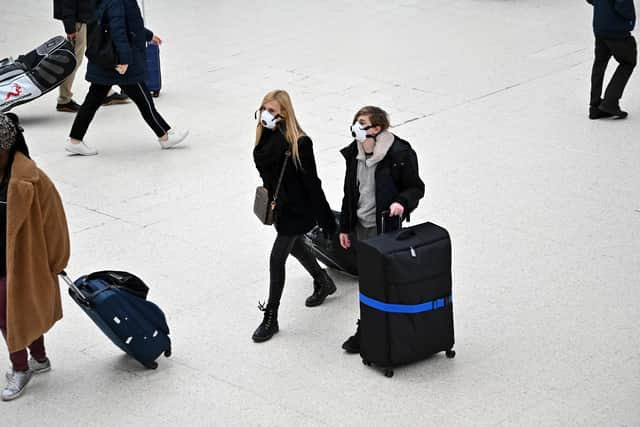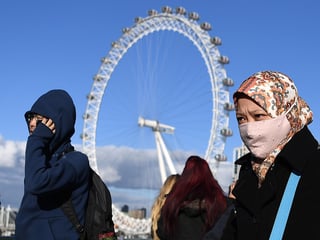Coronavirus: How often and for how long should you wash your hands to stop spread of disease?
and live on Freeview channel 276
Adverts will seek to drive home the message that regular hand-washing is the single most important action individuals can take in the fight against Covid-19.
Officials disclosed on Tuesday that the number of people in the UK diagnosed with Covid-19 had risen to 51, with 12 new cases – including the first patient in Hampshire.
Advertisement
Hide AdAdvertisement
Hide AdThe latest adverts - to be rolled out across print, radio, online and billboards - will reinforce the message that people should be washing their hands more often.
It includes when they come in from home or work, after they blow their nose, cough or sneeze, and before they eat or handle food.
The adverts say washing should be for 20 seconds, using soap and water or hand sanitiser.
Health Secretary Matt Hancock said: ‘We all have a role to play in stopping this disease and that's what this expanded campaign is all about - making sure the public knows exactly what they should be doing to keep themselves and others safe.
Advertisement
Hide AdAdvertisement
Hide Ad‘Washing hands regularly is the single most important thing that an individual can do.’


People are advised to wash their hands especially when you:
- Get home or into work
- Blow your nose, sneeze or cough
- Eat or handle food.
The 27-page Government ‘battle plan’ sets out possible strategies for delaying the virus spread including school closures, ‘reducing the number of large-scale gatherings’ and encouraging greater home working.
In a worst case scenario, it said up to 80 per cent of the population could become infected, with people hospitalised with pneumonia and a relatively high death rate among the elderly and frail.
A sharp rise in the numbers could see non-urgent operations cancelled and recently retired NHS staff being called back to duty.
Advertisement
Hide AdAdvertisement
Hide AdThe document also raises the possibility that at the virus peak, police could switch to dealing with only serious crime and maintaining public order while the military could be drafted in to support the emergency services.
Launching the plan at a Downing Street press conference, Boris Johnson said he had no doubt at all the country would get through coronavirus ‘in good shape’, saying most people affected would suffer only a mild illness.
Government scientific experts predict the UK would see a coronavirus peak two to three months after sustained person to person transmission becomes established across the country.
There will then be a further two to three months of decline, meaning an outbreak could last around four to six months.
Comment Guidelines
National World encourages reader discussion on our stories. User feedback, insights and back-and-forth exchanges add a rich layer of context to reporting. Please review our Community Guidelines before commenting.
